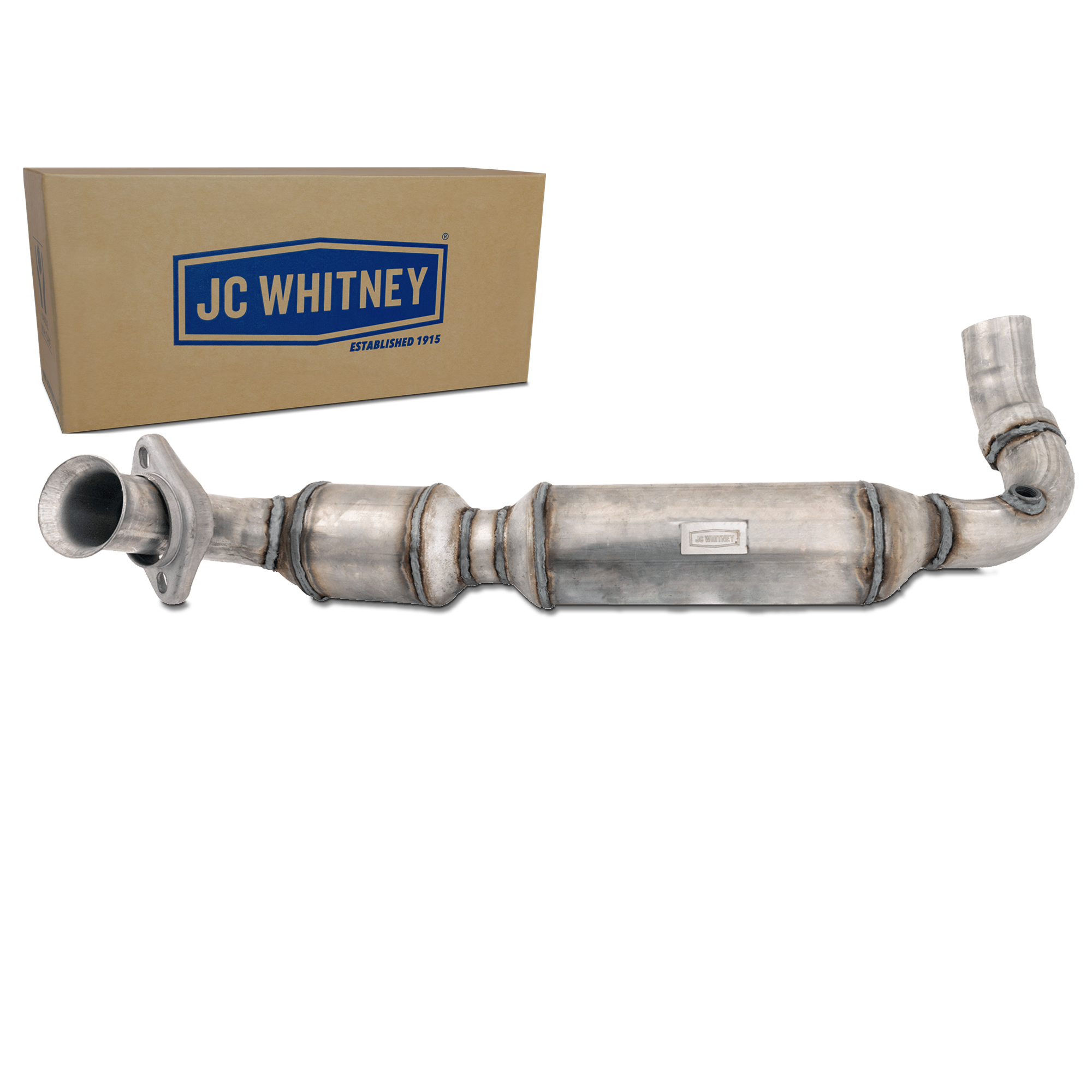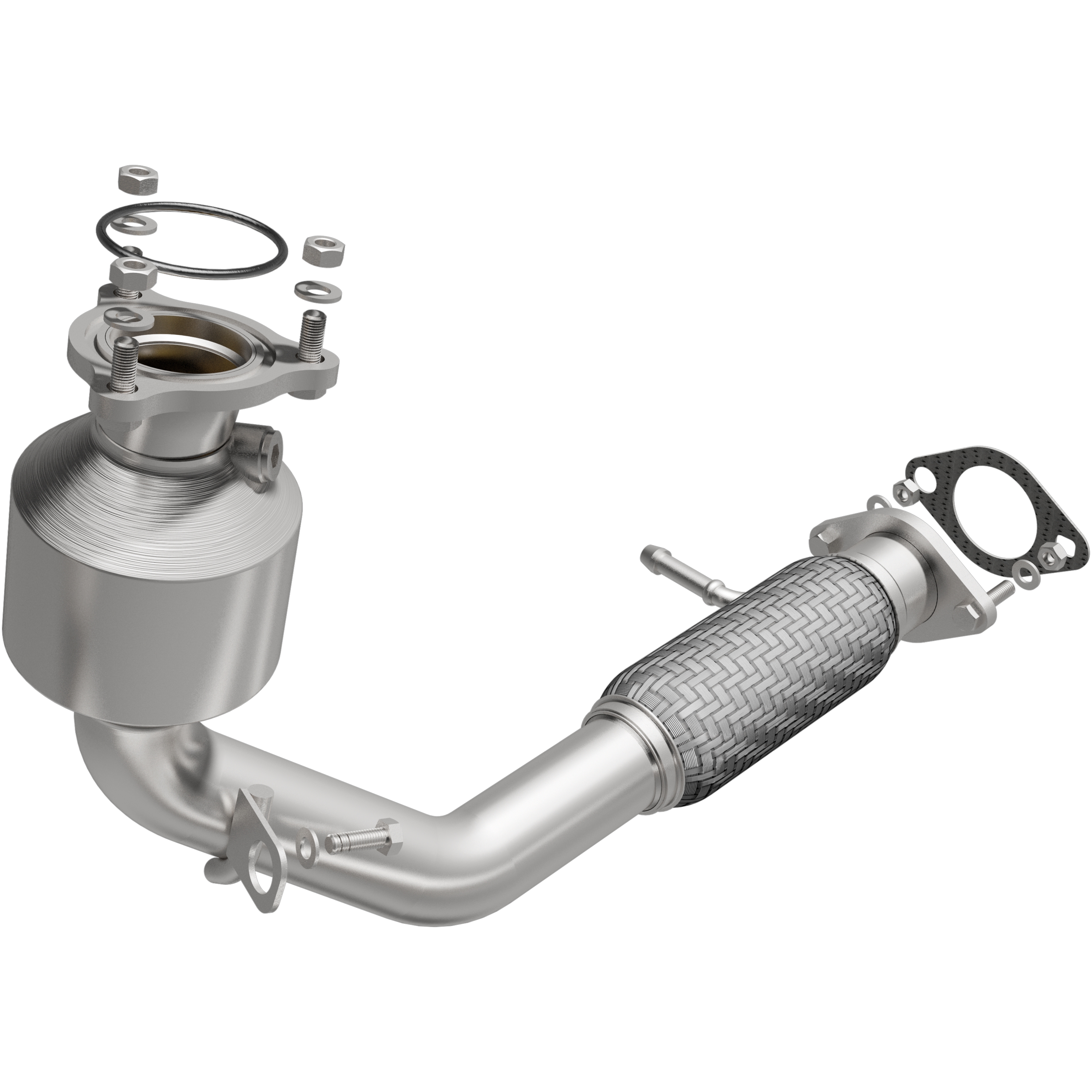A catalytic converter is an emissions control device located in your car’s exhaust system. You probably know that much already. But what you might not know is—just how long is a catalytic converter supposed to last? There are many variables that come into play.
What is the Lifespan of a Catalytic Converter?
A typical catalytic converter can supposedly last for up to 10 years or more. But generally, these components are designed to last the life of the vehicle. But of course, that doesn’t always happen. Sometimes, catalytic converters simply degrade over time, and in other instances, they fail prematurely due to engine performance problems. Catalytic converters can also be damaged due to external impact from road debris (iron or large rocks).
Keeping your car running right is the best way to extend the life of your catalytic converter.

What are the Symptoms of a Bad Catalytic Converter?
The primary purpose of the catalytic converter is to turn harmful emissions into non-toxic carbon dioxide and water. Thus, you can think of maintaining it as your contribution to reducing air pollution on the road.
To ensure that it’s working optimally, be sure to replace the catalytic converter as soon as it starts showing signs of failure. Be on the lookout for the following symptoms:
- Illuminated check engine light
- Engine performance issues, usually power loss
- Inability to start the engine (this will be preceded by other symptoms)
- Failed emissions test
It is important to note that diagnosing a faulty catalytic converter takes more than just identifying which among the signs above is prevalent in your vehicle.
What Causes a Catalytic Converter to Fail?
It is important to note that, in many cases, a catalytic converter does not fail on its own. There are several factors that can cause it to malfunction. Here are some of the most common:
Incorrect air/fuel mixture
When the engine’s air/fuel mixture is thrown off, the converter may begin to overheat, come apart and eventually become restricted.
Pieces of the damaged converter may clog other exhaust components as well.
Contamination from fluids
Fluids, such as engine oil and coolant, that enter the exhaust stream can contaminate the catalytic converter.

Engine misfire
An engine misfire can create extreme temperatures inside the catalytic converter, causing the device to melt.
Engine overdue for service
Ignoring engine-related problems or skipping routine service can cause the problems outlined above, all of which can contribute to catalytic converter failure.
Impact damage
Impact from driving over debris on the road can crush the converter, damaging it internally. Damage to the structure of the catalytic converter can also be caused by rust and corrosion.
Excessive idle time
In extreme cases where the vehicle idles nearly all of the time, the catalytic converter may run hotter than usual, eventually leading to its early demise.
If you want to learn more about how a catalytic converter works, and how it was conceived you can read our quick discussion about the catalytic converter’s history. Otherwise, read on to find out when you should replace your catalytic converter.
When Should You Replace a Catalytic Converter?
If your car is showing signs of having a bad catalytic converter, should you go ahead and replace it? Not necessarily.
Or at least, not yet. It is recommended that you bring your vehicle to an expert mechanic first and have it diagnosed properly. After all, the symptoms outlined above could very well be attributed to other malfunctioning or bad components. It’s best to let an expert decide whether or not your catalytic converter needs replacement.

Another reason why you may need to get a catalytic converter replacement is if it gets stolen.
Yes, you read that right—stolen. Catalytic converters contain precious metals, which make them attractive targets to opportunistic thieves. Metal recyclers will reportedly pay about $50 to several hundred dollars for one catalytic converter.
If your catalytic converter gets stolen, you’ll know immediately. With the cat gone, your car’s engine noise will no longer be muffled by the entire exhaust system and, as a result, your car will sound extremely loud.

While you should be able to drive it for a while, make sure to get the stolen cat replaced as soon as you can.
Here’s a helpful video to better understand how catalytic converters work:
You can also check out these videos for tips on how to replace your catalytic converter:
Where to Get High-Quality Catalytic Converters for Your Vehicle
If the mechanic says you should replace the catalytic converter, don’t put off the replacement. Invest in a high-quality converter to ensure it performs just as well as your stock part. Find exactly what you need with just a few clicks at CarParts.com.
We want to give drivers like you a hassle-free shopping experience, which is why we made it a point to design our website to be as user-friendly as possible. Simply fill out our vehicle selector and change the search filters based on your needs to find the perfect catalytic converter for your ride.
All our catalytic converters are on hand and ready to ship from strategically located warehouses across the country. In short, you can get your new part in as fast as two business days after ordering it.
Shop for high-quality catalytic converters and get the best deals at CarParts.com today!
Shop this Project



Any information provided on this Website is for informational purposes only and is not intended to replace consultation with a professional mechanic. The accuracy and timeliness of the information may change from the time of publication.



































